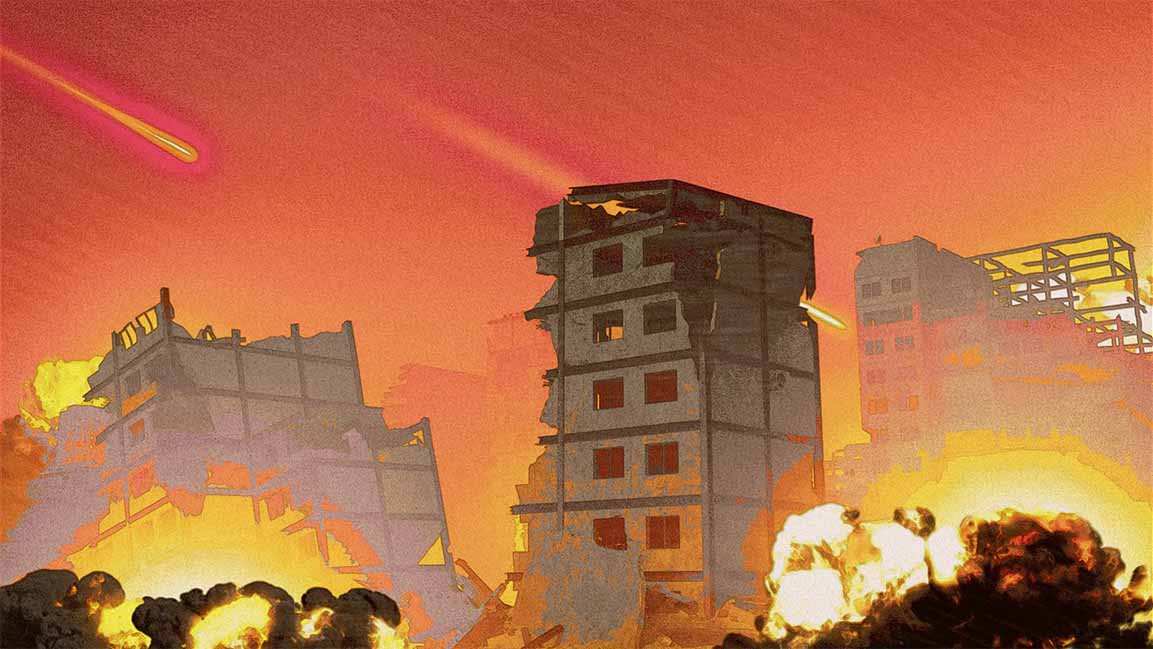- | 10:00 am
Palestinian-Israel war: What you need to know right now
The escalation of the decades-long Israel-Palestine conflict has also rattled everything from stock markets to airline flight schedules

Last weekend, Israel formally declared war on Hamas after the Palestinian militant group launched a surprise attack on the country.
Death toll from the Hamas attack had climbed to around 1,000 Israelis, with at least 2,600 injured — a staggering toll by the scale of its recent conflicts. Among the Israeli dead were 260 mostly young people gunned down at a desert music festival, where some of the hostages were abducted.
On Monday, Israeli Prime Minister Benjamin Netanyahu declared that Israel’s fierce offensive against Hamas in the Gaza Strip has “only started.” “What we will do to our enemies in the coming days will reverberate with them for generations,” he added.
The International Committee of the Red Cross (ICRC) has called for urgent humanitarian action as millions of Gazans face the consequences of a complete Israeli blockade.
As retaliatory Israeli airstrikes continue, more than 187,500 people have been displaced in Gaza since the beginning of the conflict, according to a report from the UN Office for the Coordination of Humanitarian Affairs.
UNRWA, the UN agency for Palestinian refugees, is hosting more than 137,000 people in schools across the territory. The report says airstrikes have razed 790 housing units and severely damaged 5,330 in the territory of 2.3 million people.
OCHA said damage to Gaza’s water, sanitation, and hygiene facilities has disrupted service for more than 400,000 people.
The European Union reversed an earlier announcement by an EU commissioner that the bloc was “immediately” suspending development aid for Palestinian authorities and instead said it would urgently review such assistance in the wake of the attacks on Israel by Hamas to make sure no money was misused.
“There will be no suspension of payments” at the moment, a terse European Commission statement said late Monday, five hours after EU Commissioner Oliver Varhelyi had said that all payments from the development program for Palestinians would be “immediately suspended.
Meanwhile, Saudi Crown Prince Mohammed bin Salman and Egyptian President Abdel Fattah El Sisi agreed in a phone call to intensify international and regional efforts to stop the escalation in Gaza and its surroundings and prevent its expansion in the region.
The latest conflict is also likely to majorly affect the Palestinian economy, which has already been facing headwinds. According to a World Bank report, the Palestinian economy is expected to continue operating well below its potential, and growth is projected to hover around 3%.
The escalation of the decades-long Israel-Palestine conflict has also rattled everything from stock markets to airline flight schedules.
1. Oil prices were up more than $3 a barrel in Asian trade on Monday. Oil prices surged by as much as 5%. The main reason oil prices are rising, even though neither Israel nor Palestine are major oil producers, is because investors think the war could lead to oil sanctions or supply constraints in the Middle East region.
2. Though futures are down, some stocks are rising on the war news. Most of the biggest premarket movers are companies that have significant military contracts, such as Lockheed Martin Corporation (LMT) and RTX Corporation (RTX)—both up nearly 5%—and Northrop Grumman Corporation (NOC), which is up almost 4%.
3. Several international air carriers have suspended flight services with Tel Aviv, saying they are waiting for conditions to improve before resuming. Etihad Airways canceled Monday and Tuesday flights between Abu Dhabi and Tel Aviv. Gulf Air canceled all flights to Tel Aviv until October 14.
4. Tech companies operating in Israel were expected to fortify security as they could face disruptions.
5. Cryptocurrencies are down across the board as of the time of this writing. However, crypto heavyweights Bitcoin and Ethereum hold better than others—each down less than 2%. Some coins, including XRP, Solana, and Shiba Inu, are down more than 4%.
































